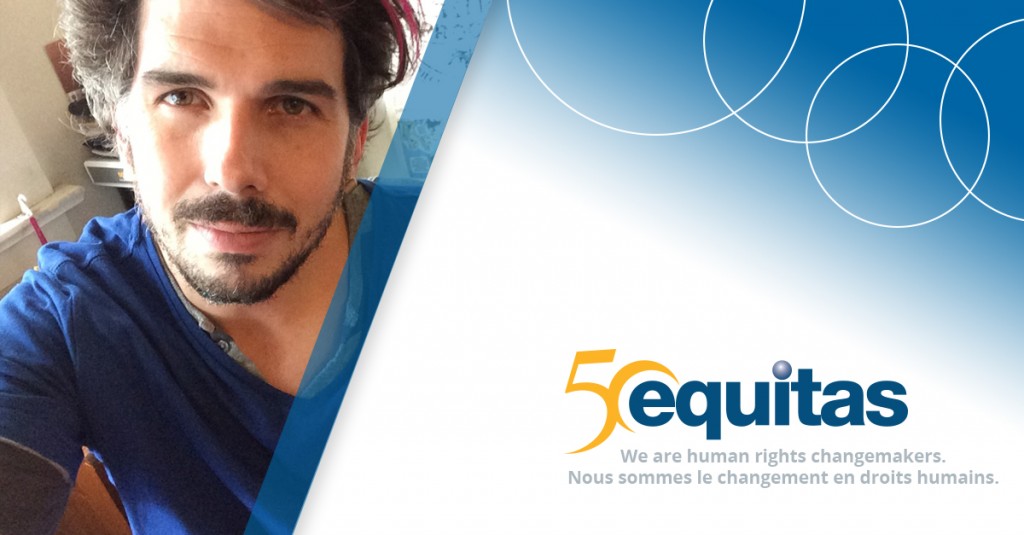PHILIP ACKERMAN — Toronto, Canada
This story is part of the series We are human rights changemakers to celebrate Equitas’ 50th anniversary (#Equitas50). All through 2017, we invite you to discover stories of 50 inspiring human rights changemakers. These are but a few of the hundreds who have changed lives around the world through human rights education with Equitas’ support.

Each person wants and deserves to be heard. Children especially must be taught that their voices are worthy, knowing that being heard is a sign of being loved.
When Philip Ackerman started working at Toronto’s FCJ Refugee Centre in 2011, only six regulars quietly attended the youth group meetings. In total contrast, today’s raucous meetings gather upwards of 50 refugees and precarious migrant youth to openly discuss the issues they face like bias (racial, gender, and class), language barriers, and anxiety. High on their minds is their refugee status, which impacts secondary education and access to health care, among other things.
While the meetings may appear to be run haphazardly, there are basic guidelines, which were developed organically by the youth themselves. Philip said, “There are a lot of voices speaking at once. A lot of laughter! A lack of structure.” But Philip attributes this looseness to the centre’s booming youth participation.
“Youth have a lot of rules in the refugee camp or living situation. They have rules depending upon their status. To give them freedom just to be without strict policies or guidelines, that’s probably one of the core reasons the group is so successful.”
During the early days of the group, FCJ focused, with flagging results, on increasing the youth group’s size. Attending Equitas’ Speaking Rights trainings in 2012 and 2013 led Philip to shift emphasis. “We focused on the physical space we have and made it really youth-engaged. We figured out what the youth wanted and provided it.” Almost immediately, young refugees and newcomer youth began pouring in and Philip estimates that over 200 youth have regularly participated in the group over the past five years.
When one considers what these young eyes have witnessed and survived, offering a safe space is vital to improving their adjustment and overall mental health. These refugees from Africa, South America, and the Middle East bring their own cultures and languages. They often feel unsafe in public due to their status, race, gender, and/or sexuality. Learning to accept each other for their similarities and respect their differences makes a meaningful impact that lasts long after they’ve outgrown the youth group.
Working with youth refugees has highlighted for Philip his own white, male privilege. “I can walk down the streets at night and not worry about my safety.”
The shift in his worldview is a gift and one Philip repays by “using my skills and experience to amplify their voices. But that means listening to how they want me to do that.”
There are an estimated 65 million refugees, displaced people and asylum seekers worldwide, more than 50% of which are estimated to be children under 18. About 26,000 refugees arrive annually in Canada , according to Immigration, Refugees and Citizenship Canada. In addition to this number, there are the countless more who are without status, or with some form of precarious immigration status. That’s a whole lot of voices begging to be heard.
PHILIP ACKERMAN — Toronto, Canada
Resource Development and Youth Coordinator, FCJ Refugee Centre
Organizer, Equitas Migration and Youth Activity, 2016
Organizer, Youth Conference (sponsored by Equitas), 2014
Participant, Equitas Speaking Rights program, 2012-2013
Story prepared by Deborah Kevin, Our Tales UnTold, www.OurTalesUnTold.com
Member of the Association for Personal Historians
Did you like this story? Give us your support! Even the smallest donation contributes to big impact in Canada and around the world. See how >